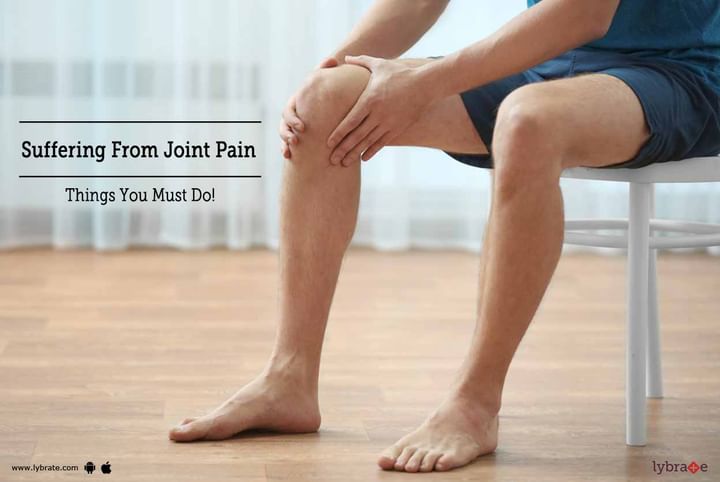Suffering From Joint Pain - Things You Must Do!
The various movements of the body are enabled by the way the bones work with each other and allow for various movements. You cannot perform a single movement without the coordination of the various joints and bones. It is also for the same reason that joint pains are so common. Accidents, sports injuries, play area injuries, and general ageing are some of the causes that can result in joint pain. There are definitely ways to treat them, but at the same time, preventing them also can be helpful. Read on to know some of the ways to prevent and manage joint pains.
Precautionary measure: For children, ensure they are playing under the supervision of an adult and are wearing sufficient protective gear in the form of helmets, wrist/elbow guards, etc. The same goes for athletes who are prone to injuries. It is always prudent to know your physical limits and not stretch your body constantly. This will go a long way in reducing injuries. Always keep a first-aid kit in your sports bag so that you can manage the pain at the earliest.
If prevention does not work, and injuries do happen, some of the ways to manage them are outlined below.
- Cryotherapy/ice therapy: By reducing the blood flow to the affected joint, ice helps in reducing the pain and swelling, which are usually the prominent symptoms of any joint injury. Using an ice pack for 15 to 20 minutes every hour is greatly useful in reducing the pain. This can be continued for the next few days until the pain stops. Avoid ice burns by not applying ice directly on the skin; instead, wrap it in a towel or a soft cotton cloth.
- Oil massages: Natural oils can be used to massage the affected joints which also greatly reduce pain. Oils which contain menthol or give a topical soothing effect are highly recommended. If you are unable to do it at home, seek professional help for the same.
- Hydrotherapy: Warm baths with salts added for extra benefit can provide soothing relief from joint pains. Try these before going to bed to also get good sleep.
- Herbal mixes: Tea bags and other herbal mixes can also be used to relieve joint pains. These may work for some and may not work for others. As these are external applications, you can give it a try.
- Immobilise the area: The affected joint should be immobilised completely or partially, depending on the extent of damage.
- Physiotherapy: While initially the joint needs to be rested, getting into a physical exercise routine with inputs from a physiotherapist is very essential to avoid long-term immobility.
- Medications: Non-steroidal pain killers are another proven method to manage joint pains. If you wish to discuss about any specific problem, you can consult a General Physician.



+1.svg)
